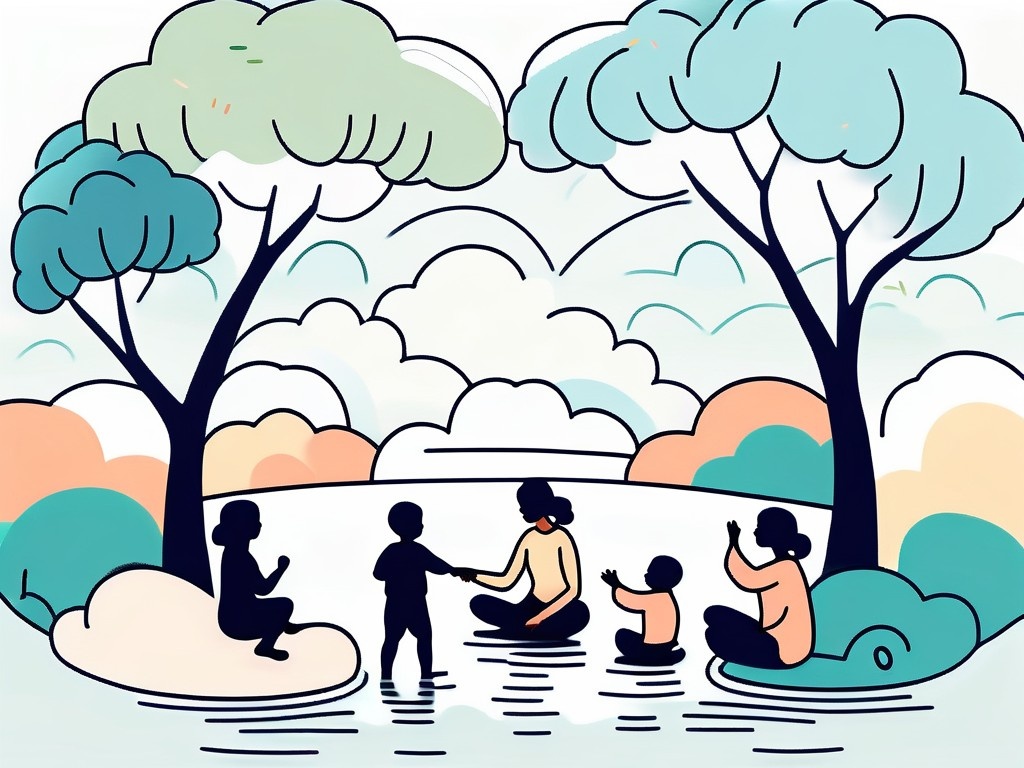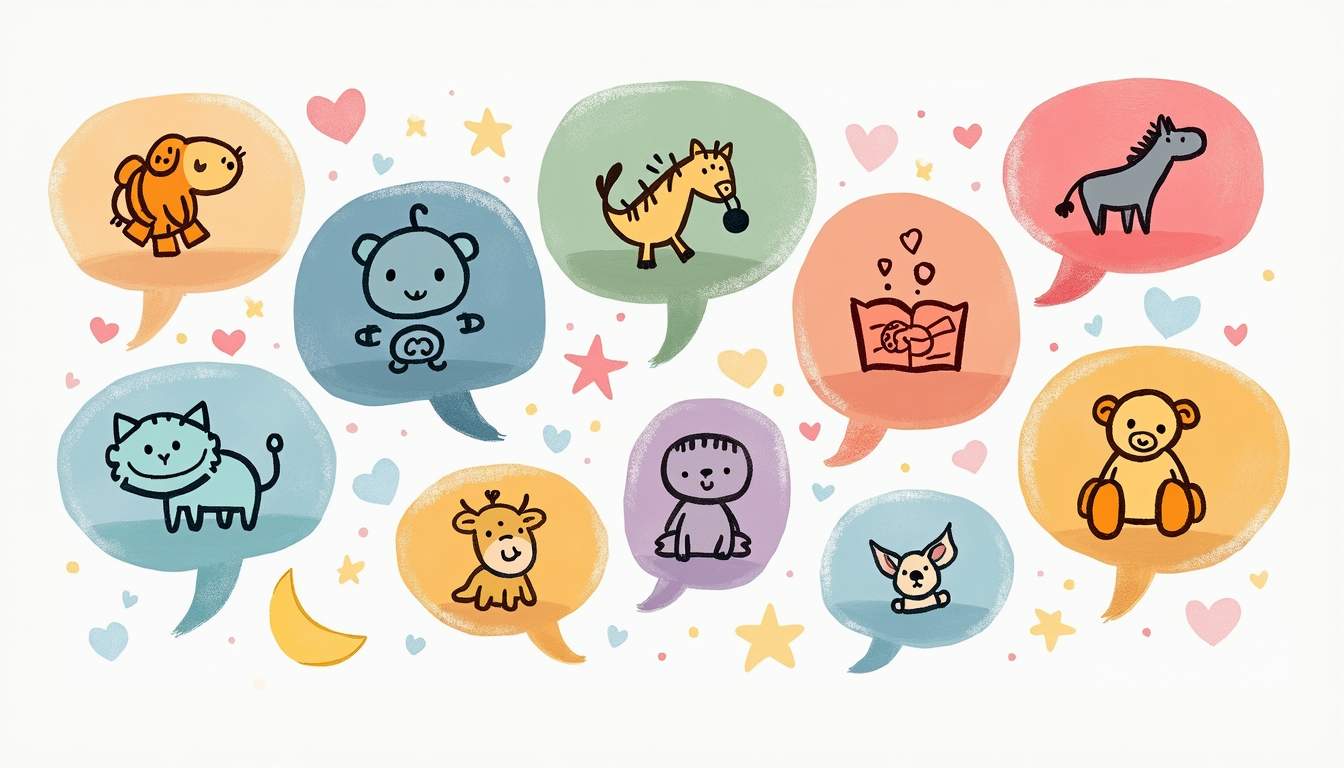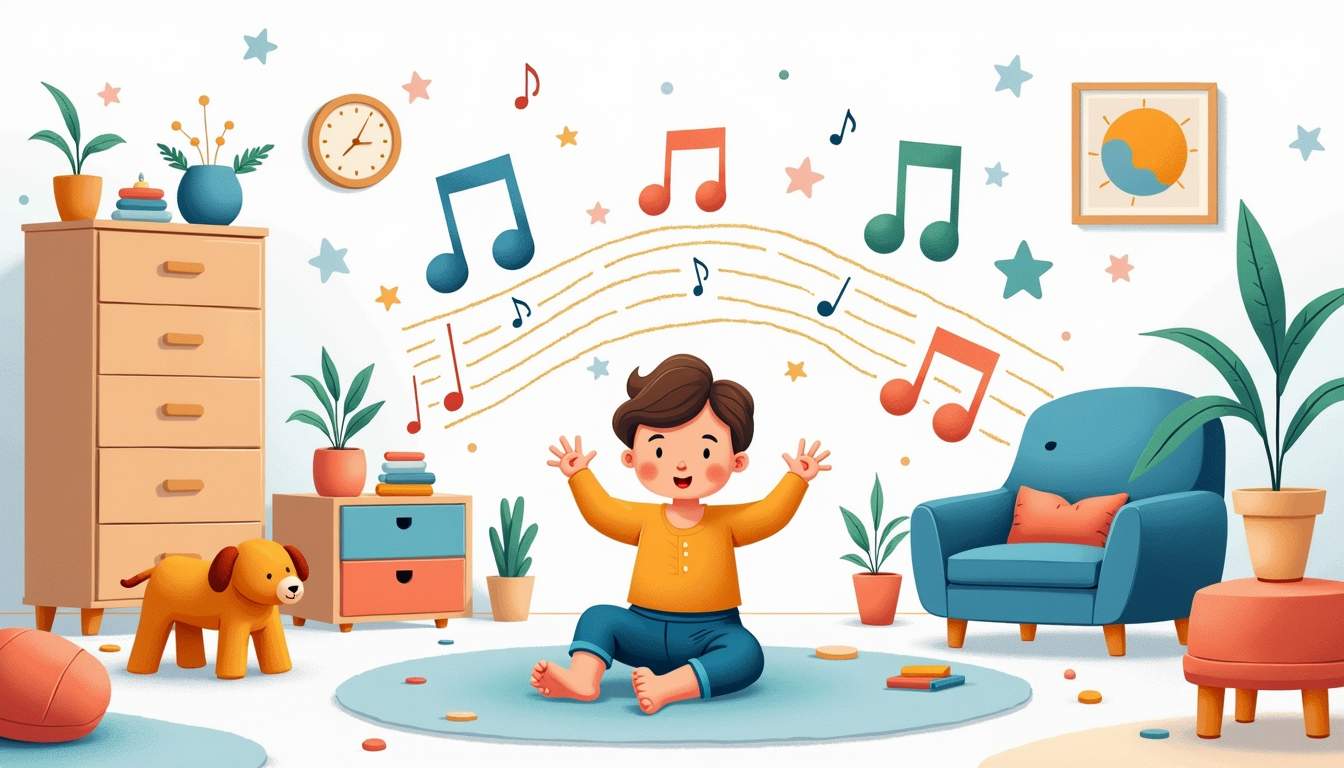Understanding Self-Regulation in Infants and Toddlers
The Concept of Self-Regulation
Self-regulation refers to the ability to manage one’s emotions, thoughts, and behaviors in response to various situations. In infants and toddlers, this skill is crucial as it lays the foundation for emotional and social development. Self-regulation allows children to control their reactions, delay gratification, and make appropriate choices. It encompasses a variety of skills, including impulse control, emotional regulation, and attention management.

As children grow and interact with their environment, they face new challenges that require self-regulation. For instance, a toddler may feel frustrated when a toy is out of reach. By employing self-regulation skills, the child can learn to express their feelings verbally rather than resorting to a tantrum. This skill not only supports personal development but also promotes better interactions with peers and caregivers. Furthermore, the ability to self-regulate is linked to long-term outcomes such as academic success and healthy relationships, making it a vital aspect of early childhood development.
Developmental Stages of Self-Regulation
Self-regulation develops through various stages and is influenced by both biological and environmental factors. In the first few months of life, infants rely heavily on caregivers to help them regulate their emotions. For example, a crying baby uses their vocalization as a signal, and caregivers respond by providing comfort or attention. This responsive caregiving is essential, as it teaches infants that their emotions can be understood and managed with the help of others.
As children approach their second year, they begin to exhibit preliminary self-regulation skills. They might show the ability to wait for a moment before acting on an impulse, such as waiting for a parent’s instruction before diving into a box of toys. By three years of age, many children can follow simple directions and understand basic rules, which marks a significant milestone in their self-regulation journey. During this stage, children also start to develop an understanding of social norms and expectations, which further enhances their ability to navigate social situations. Engaging in play with peers becomes a critical context for practicing these skills, as children learn to negotiate, share, and resolve conflicts, all of which require a degree of self-regulation.
The Importance of Self-Regulation Skills
Benefits of Early Development of Self-Regulation Skills
Teaching self-regulation skills early in life provides numerous benefits for children’s overall development. One of the most significant advantages is the improvement in emotional health. Children who develop self-regulation skills are better equipped to handle stress, manage frustration, and remain calm in challenging situations. These emotional competencies are essential for mental well-being throughout life.
Moreover, children who master self-regulation tend to perform better academically. Such skills enable them to focus, follow classroom rules, and engage with their peers more effectively. Their ability to regulate their emotions reduces disruptive behaviors, creating a more conducive learning environment. This enhanced focus not only aids in comprehension of the material but also fosters a love for learning, as children feel more confident and capable in their abilities.
Long-Term Impact of Self-Regulation Skills
The impact of self-regulation skills extends beyond early childhood. Research indicates that children with strong self-regulation abilities are more likely to achieve success later in life. These individuals often excel academically, build healthier relationships, and exhibit better life satisfaction. Through the lens of social-emotional learning, self-regulation is a core skill that contributes to resilience and adaptability in various life situations. The ability to pause and reflect before reacting can lead to more thoughtful decision-making, which is invaluable in both personal and professional contexts.
Furthermore, self-regulation can influence career success as adults. Individuals with strong self-regulation skills are more likely to navigate challenges effectively, manage stress in the workplace, and maintain productive professional relationships. They are often seen as reliable and composed, qualities that are highly valued in any career. Thus, fostering self-regulation in early childhood is not simply a short-term endeavor; it’s an investment in future success. Additionally, self-regulation skills can enhance leadership qualities, as these individuals are often more adept at motivating others and managing team dynamics, leading to greater opportunities for advancement in their careers.
Teaching Self-Regulation to Infants and Toddlers
Strategies for Teaching Self-Regulation
Teaching self-regulation to infants and toddlers can be accomplished through a multifaceted approach. One strategy involves modeling appropriate behavior. Caregivers can demonstrate how to handle frustration or disappointment while expressing feelings constructively. For example, when a child is upset due to a broken toy, a caregiver can articulate their own feelings calmly and guide the child in problem-solving.

Additionally, setting up routines can help young children learn self-regulation. Predictability in daily activities, such as meal times and nap times, empowers children to anticipate events and understand the concept of waiting. Such routines foster an environment where children feel secure and are more likely to practice self-regulation. Moreover, incorporating transitional activities, such as singing a specific song before moving from playtime to cleanup, can ease the shift and help children mentally prepare for the change, reinforcing their ability to manage transitions smoothly.
Role of Parents and Caregivers in Teaching Self-Regulation
Parents and caregivers play a pivotal role in teaching self-regulation. Their responses to a child’s emotional outbursts or frustrations significantly influence the child’s ability to develop these skills. Through consistent and empathetic responses, caregivers can contribute to a child’s understanding of their emotions and how to manage them. For instance, when a child throws a tantrum, a caregiver can validate their feelings by saying, “I see you’re really upset. It’s okay to feel that way,” which helps the child learn that emotions are a normal part of life.
Furthermore, engaging in activities that promote emotional expression can be beneficial. Interactive play, storytelling, and discussions about feelings provide children with opportunities to understand and articulate their emotions. Creating a nurturing atmosphere where feelings are acknowledged helps lay the groundwork for effective self-regulation. Additionally, introducing simple mindfulness practices, such as deep breathing exercises or gentle yoga, can help toddlers learn to calm themselves when they feel overwhelmed. These practices can be fun and engaging, turning self-regulation into a playful experience rather than a chore, ultimately making it easier for young children to embrace these essential skills as they grow.
Challenges in Teaching Self-Regulation
Recognizing and Overcoming Obstacles
While there are numerous benefits to teaching self-regulation, caregivers may face challenges in this process. One common obstacle is the misconception that young children should naturally know how to regulate their emotions. In reality, this is a skill that must be nurtured over time. Many caregivers may feel overwhelmed by the emotional outbursts or impulsive behaviors of children, leading to frustration and a sense of helplessness. This misunderstanding can result in a lack of appropriate strategies being employed, further complicating the child’s ability to learn self-regulation.
Additionally, external factors such as stress in a child’s environment can hinder their ability to develop self-regulation. Factors such as family dynamics, socioeconomic status, and exposure to trauma can significantly impact a child’s emotional health. Thus, recognizing these challenges is essential to creating a more supportive atmosphere. By addressing such issues, caregivers can better equip themselves to teach self-regulation effectively. Implementing mindfulness practices or creating a calm space for children to express their feelings can be beneficial in mitigating these external stressors.
Tailoring Techniques to Individual Needs
Every child is unique, and their self-regulation journey may differ based on personality, temperament, and developmental levels. Understanding individual needs is crucial for effective teaching. For example, a child who is naturally more impulsive may require more structured approaches, while another may thrive in flexible environments. Caregivers should also consider the child’s interests and strengths when designing self-regulation strategies, as incorporating elements that engage the child can lead to more successful outcomes.
Caregivers can tailor techniques by observing children’s reactions to various strategies. Keeping a record of what works and what does not allows caregivers to adapt their approaches, ensuring that each child is met with the appropriate support for their self-regulation development. Additionally, involving children in the process by discussing their feelings and preferences can empower them, making them active participants in their own learning journey. This collaborative approach not only fosters a sense of ownership but also enhances the child’s ability to understand and manage their emotions effectively.
Measuring Progress in Self-Regulation
Indicators of Successful Self-Regulation
Assessing progress in self-regulation can be challenging yet rewarding. Caregivers should look for specific indicators that suggest improvement. These may include a child’s ability to wait for a turn during play, articulate their feelings verbally instead of acting out, or follow simple instructions without hesitation.

Further, social interactions can serve as vital indicators. A child who is developing self-regulation will typically demonstrate improved cooperation with peers and a greater ability to resolve conflicts amicably. These indicators reflect not only the child’s internal emotional state but also how they relate to others.
Adjusting Techniques Based on Progress
Measuring progress is not a one-time task, but rather an ongoing process. As children demonstrate growth in self-regulation, caregivers can adjust their teaching techniques accordingly. This may involve introducing more complex self-regulation challenges or allowing children to take on increased responsibilities.
Moreover, ongoing conversations about feelings and emotions should evolve as the child matures. Expanding on self-regulation concepts through age-appropriate discussions can further solidify their understanding and application of these skills in everyday situations. Ultimately, this adaptation ensures that self-regulation learning remains relevant and effective throughout a child’s early years.
In conclusion, teaching infants and toddlers self-regulation skills is a critical component of their emotional and social development. By understanding the concept, recognizing the challenges, and employing effective strategies tailored to individual needs, caregivers can foster positive outcomes that resonate throughout a child’s life journey.











